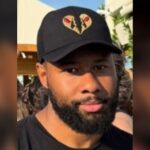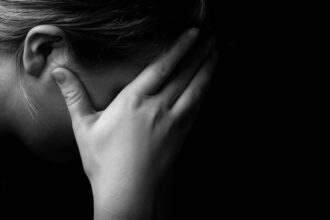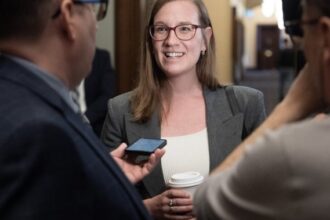The anguished cries of families waiting for loved ones held captive by Hamas collided with anti-Israel demonstrators in Windsor this week, exposing deep divisions that continue to reverberate across Canadian communities nearly eight months after the October 7 attacks.
What began as a panel discussion featuring relatives of Israeli hostages at the University of Windsor quickly descended into chaos when protesters stormed the venue, disrupting the event with chants and forcing organizers to evacuate speakers through back exits amid security concerns.
“They were pounding on the windows and doors… we couldn’t hear the speakers,” said Jonathan Goldstein, who attended the event. “The families came to share their stories, their pain. Instead, they were met with intimidation and had to be escorted out for their safety.”
The panel, organized by local Jewish community groups, featured Ayelet Samerano, whose cousin remains among the approximately 130 hostages still held in Gaza after Hamas’ October attack that killed 1,200 Israelis. Four family members of hostages had traveled to Canada specifically to share their experiences and advocate for their relatives’ release.
University of Windsor officials confirmed campus police were called to manage the situation but no arrests were made. The university later issued a statement acknowledging both the right to free expression and the importance of maintaining a safe environment for all campus visitors.
This incident isn’t isolated. Similar disruptions have occurred at hostage family events across North America, reflecting the increasingly polarized response to the Israel-Hamas conflict. In Toronto, Montreal, and Vancouver, demonstrations have frequently spilled into confrontations between pro-Palestinian groups and Jewish community organizations.
“What’s particularly troubling is the targeting of hostage families,” said Shimon Koffler Fogel, CEO of the Centre for Israel and Jewish Affairs. “These aren’t political officials or policy makers – they’re civilians experiencing unimaginable trauma while their loved ones remain in captivity.”
Human rights advocates note the complex balance between legitimate protest and harassment. “Demonstrating against government policies is protected expression,” explained constitutional lawyer Karen Selick. “But preventing others from speaking or creating an atmosphere of intimidation crosses important lines in a democratic society.”
For Windsor’s Jewish community, estimated at about 1,500 people, the incident has heightened concerns about safety and belonging. Local synagogues have reportedly increased security measures, while community leaders have called for increased dialogue between groups with opposing viewpoints on the conflict.
As international pressure mounts for both a ceasefire and hostage release, Canadian communities continue grappling with how to navigate these tensions productively. The federal government has maintained support for Israel while calling for humanitarian protection in Gaza, walking a diplomatic tightrope that satisfies few on either side of the debate.
The disrupted Windsor event underscores a troubling question facing Canadians as the Middle East conflict continues to reverberate globally: How can we preserve both freedom of expression and the dignity of those directly affected by distant violence, particularly when the victims are not political actors but families caught in circumstances beyond their control?










